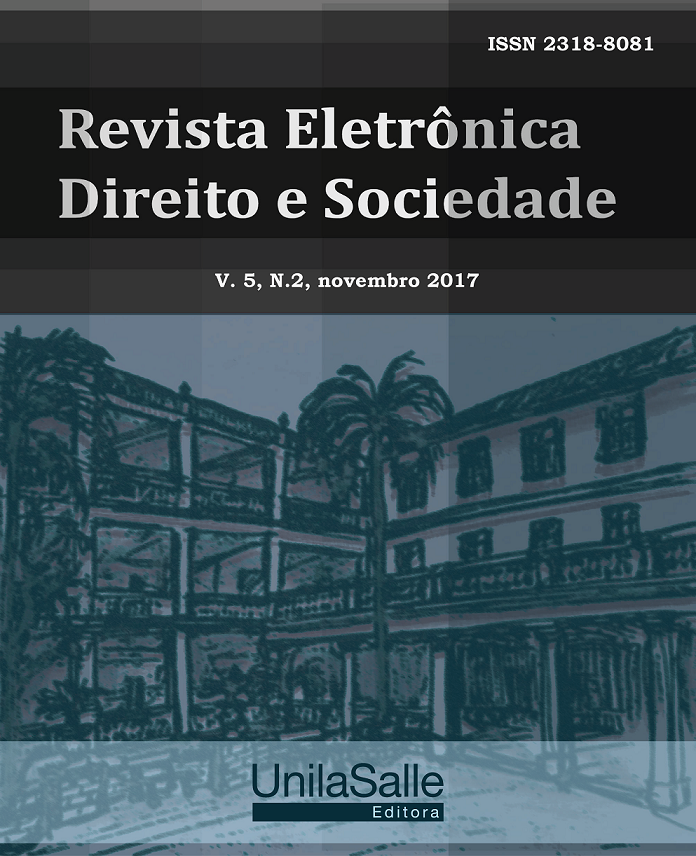Disrespect to human dignity: dialogues between law, literature and culture
DOI:
https://doi.org/10.18316/redes.v5i2.3466Keywords:
Law, Literature, Culture, Family Relationships, Monteiro Lobato.Abstract
This article presents an analysis of the tale Negrinha by Monteiro Lobato, first published in 1920 in a storybook of the same name. In this analysis, we establish a relation between Law, more precisely the transformation of family relationships and the fundamental rights inscribed in the article 227 of the Federal Constitution, Literature and Culture, explaining and exemplifying the theme with a literary text. The proposition of the subject is based on the understanding that the mobility of cultural processes acts on the way society regulates, manages and represents, in its rules of social behavior, issues related to the identity of individuals and its bonds. In this regard the tale written by Lobato denounces the violation of human and fundamental rights expressed in the article above, which assume relevance both legal and social as well as cultural, considering that it is the duty of the state, the family and society protect and support the minor. Elements of research in doctrine and legislation will be used to trace the legal aspects present in the theme, followed by an analysis of the suggested tale, given its legal, contextual and cultural aspects.
Downloads
Published
Issue
Section
License
Authors who submit their manuscripts for publication in the “REDES” Magazine agree to the following terms:
The authors claim to be aware that they retain copyright by giving “REDES” the right to publish.
The authors declare to be aware that the work submitted will be licensed under the Creative Commons Non-Commercial Attribution License which allows article sharing with acknowledgment of authorship and publication in this journal.
The authors declare to be aware that by virtue of the articles published in this journal have free public access.
The authors declare, under the penalty of the law, that the text is unpublished and original and that they are aware that plagiarism has been identified, plagiarized authors will be informed - willingly, to take legal action in the civil and criminal sphere - and, plagiarists will have their access to the magazine blocked.
The authors state that - in case of co-authoring - all contributed significantly to the research.
Authors are obliged to provide retractions and (or) corrections of errors in case of detection.
The authors are obliged not to publish the text submitted to “REDES” in another electronic journal (or not).
The Electronic Journal Law and Society - REDES - is licensed under a Creative Commons License. Attribution-NonCommercial 4.0 International.Based on work available at "http://revistas.unilasalle.edu.br/index.php/redes/about/submissions#copyrightNotice".
Permissions in addition to those granted under this license may be available at http://creativecommons.org/.

